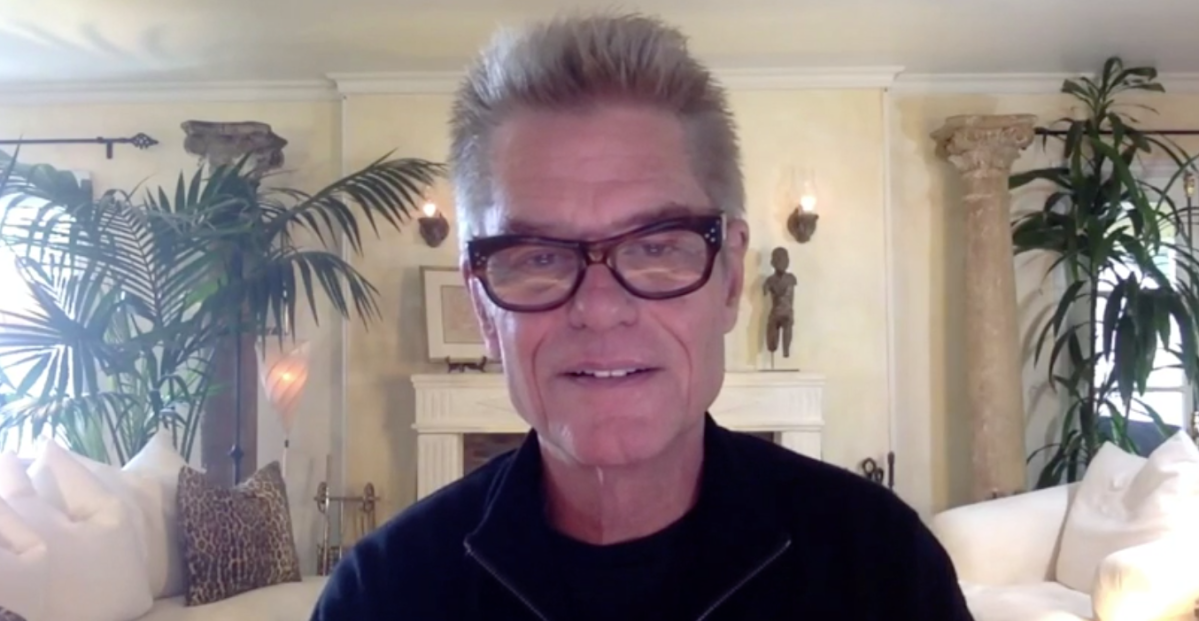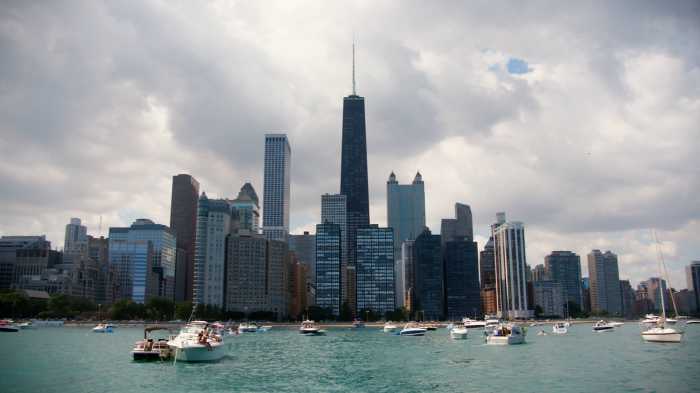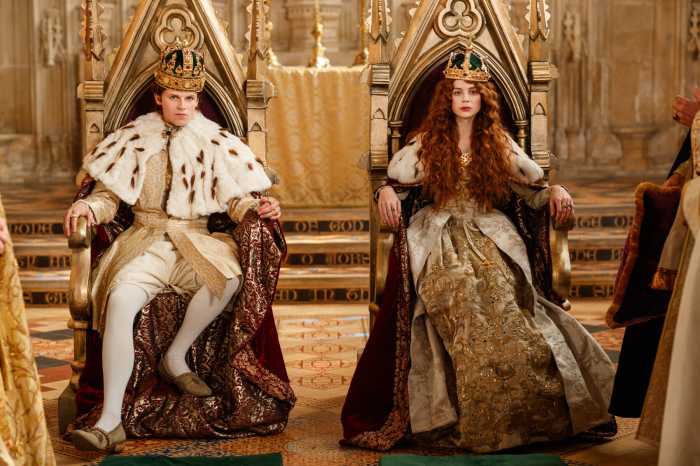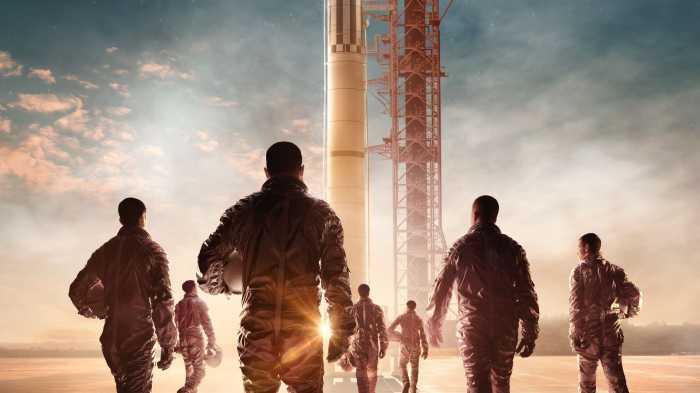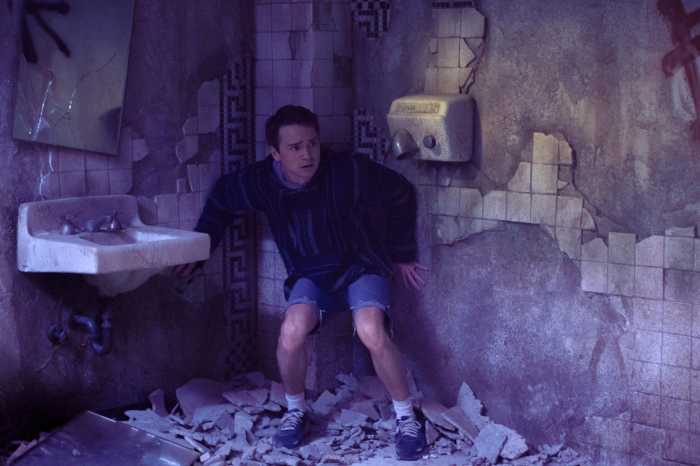When National Geographic’s “Hot Zone” first premiered, the freshman season of the show — which focuses on epidemics and catastrophic events — took a closer look at Ebola. Now, anthrax is at the helm of the story.
Examining the events that took place in 2001, “Hot Zone: Anthrax” centers on the team of experts tracking down the killer and mailer of the anthrax letters just weeks after 9/11. Starring Daniel Dae Kim, Tony Goldwyn and Harry Hamlin as Tom Brokaw, the show gives audiences a look behind the curtain of the media in this situation. What we didn’t know then, we know now, and the show doesn’t hold anything back.
As Brokaw, Harry Hamlin had big shoes to step in as the newscaster’s legacy still precedes him, and the actor went into detail on how he got prepared to step into the role right in the middle of a precarious time in history.
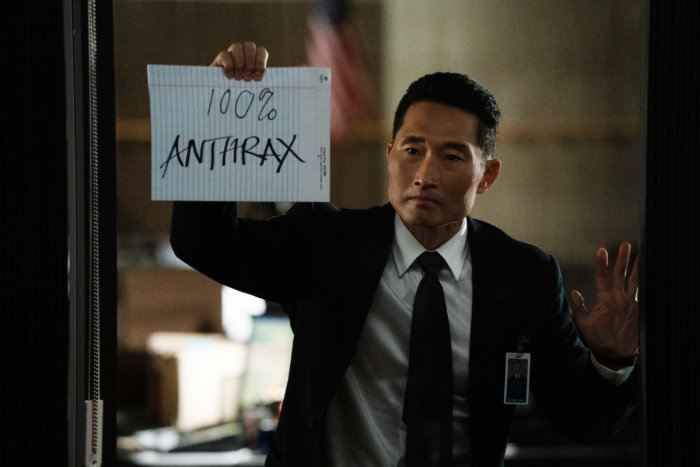
What was it about this role that interested you to want to sign on?
Mainly it was the role. I’ve been a fan of [Tom Brokaw] since I was a little boy, I first saw him as a newscaster on KNBC when I was a teenager. From the earliest times I saw him on television I knew this guy was going to be a superstar and certainly, he fulfilled that in more ways than one. Then when I was offered the role, I said to my agent this is like a walk in a time-warp, because I’m not an impressionist and I’ve never tried to be someone else that’s famous or well-known before or even try to approximate somebody’s voice who was well known before. I saw it as a challenge that would probably stretch me to the limit if I took it on. It’s a kind of hubris that I have that makes me take on impossible challenges from time to time, I’ve done that many times in my life and sometimes I’ve succeeded and sometimes not. But, I think it was the idea of trying to do something and pull something off that I thought was impossible. So, I went and looked at [Anthony] Hopkins doing Nixon to figure out how an actor could do that and do it without trying to whack you over the head with some kind of impression. I watched how he did it and he was very subtle in the way he did it, but you got Nixon through his portrayal. I wanted to try to do that and to get Tom Brokaw’s voice, and it was difficult because his voice is much deeper than mine. That took a lot of work and vocal work.
So, what were some of the characteristics of Tom that you wanted to get across onscreen?
As a broadcaster he was very level-headed and he didn’t show his emotion on his sleeve at all. I wanted to bring that quality to him, but I also wanted to dig deeper and see who he was as a human being and not just as a broadcaster. Fortunately, there’s a tremendous amount of material on Tom and a lot of books he’s written himself about his life that he’s also [narrated] audio books. So, I was able to read and listen to those things and get the cadence in his voice, the way he emphasized certain words and why he emphasized certain words over others. That was a challenge to to get that and it took a long time and a lot of listening to Tom Brokaw to get that. But also, listening to his memoirs I was able to get a sense of who he was as a human being, not just as a newscaster who was trying to be level-headed without any prejudice—and I wanted to bring that into a couple of the scenes.
He’s obviously still remembered in a great light for many, what would you say Tom Brokaw was to people, especially during uneasy times?
I think the reason that Tom Brokaw was such a success and such a successful broadcaster was because he had a gravitas. That gravitas translated into a very steady voice and presence, so you would listen to him during a broadcast and he wasn’t trying to go crazy, he wasn’t trying to rile you up. Now, you look at the news today and so much of it is being broadcasted in outlets that are really trying to get people’s attention and get people riled up. He was someone who you listened to, he always delivered in a very steady, even way and you felt better about the situation. I think that’s one of the reasons why he was so successful. I wanted to try and bring as much of that to the whole broadcast part as best I could. He’s a steady voice.
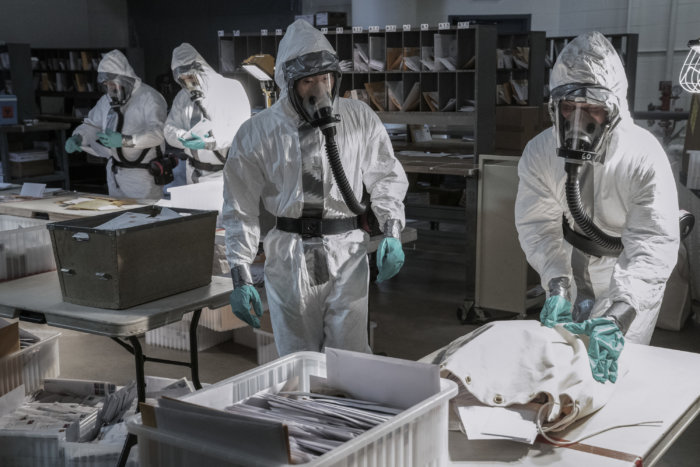
What was your experience with Anthrax in real time in 2001? Now after learning so much on the show, how do you feel about the situation?
I was there and it was right after 9/11, and we all thought this was an extension of 9/11 and terrorists from another continent. When we realized it could be closer to home and it could be domestic terrorism, people got really freaked out by that. I remember I had a trip to the East Coast which I canceled because of the scare going on all along the seaboard. And I’m pretty sure it was Donald Rumsfeld or someone else who recommended getting duct tape, and someone made a comment about gas masks… I remember going out and getting those because there was a question about what if somebody flew over your city with a crop duster and dispersed anthrax? How would you feel about that? And he said go on and get duct tape and duct tape your windows up, which we all did. I still have some of that duct tape that I never used. As far as the story, there are a lot of things present in this show that we didn’t know about. They were not part of the daily news broadcasts that we were getting, such as how deeply the FBI was involved, who was involved and how the medical community was dealing with it. We just got this sort of top layer of that, so we get a much more three dimensional view of it when you do see it.
“The Hot Zone: Anthrax” premieres on National Geographic Nov. 28.



